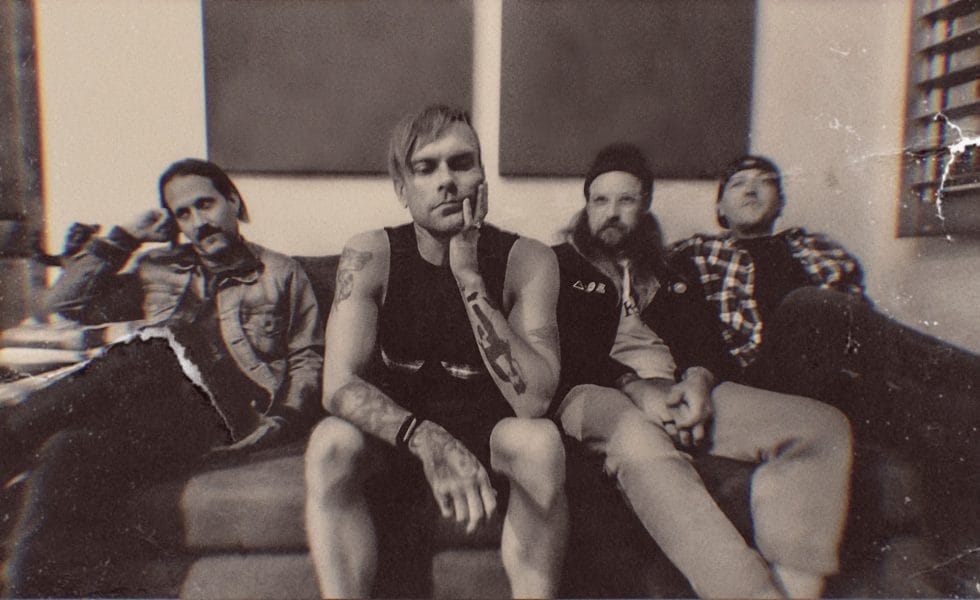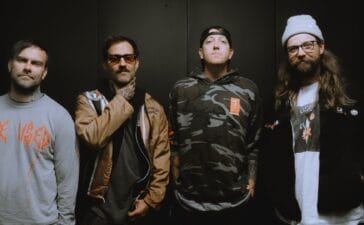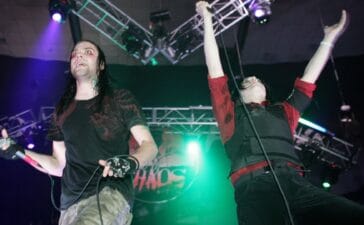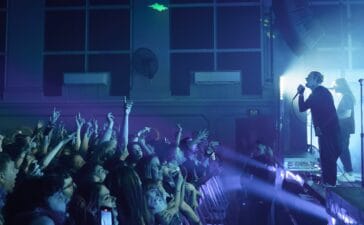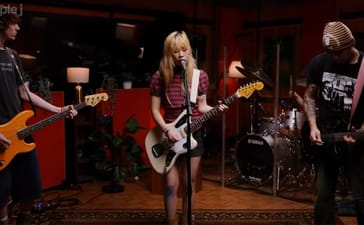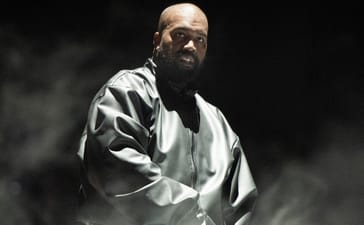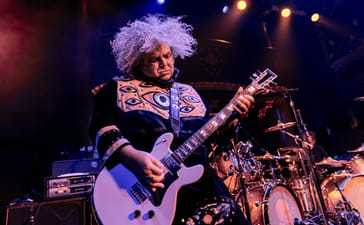From the get go, the forthcoming record from The Used was heralded as a tip of the hat to their earlier work. However, about five seconds into Heartwork, set for release later this month, it becomes clear that’s a massive oversimplification.
As a body of work, Heartwork contains multitudes, some of which are themes and ideas that have connective tissue to, say, the 2002 self-titled release or 2004’s In Love And Memories. But the album is also progressive and forward thinking.
As Blunt Magazine would learn speaking with frontman Bert McCracken, Heartwork is also a collective rollercoaster ride through the imagination of the whole band, with a hefty dose of input from producer John Feldmann.
Heartwork is an incredibly entertaining listening experience. Was it as fun to make this album as it is to listen to?
It’s been a fun process from the very beginning when we first started writing it. It was like November of 2018, I think. So from then until now, it’s just been a pleasure to make this record. There’s been no weirdness. It feels like back to the beginning of making music with John Feldmann.
Every day was a blast. Everybody looked forward to it. It didn’t feel like work. Not for one second. But yeah, even talking about it’s a pleasure. I still am obsessed with it. I listen to it daily still, and it’s been months since we finished it, so that’s a good sign. I’m not sick of it yet, I think everybody will like it.
Was this a reaction to a particularly difficult previous album session?
No, there’s just different types of records. And there’s different periods. And I think that a record is just perfectly a snapshot of where the artist is at in that moment in time. Our last record, it didn’t feel like work, but it was a strain putting myself on the record in that way. And the exposed vulnerable journal-like lyrics is just…It never felt like work, but it was very, very painful. This record, everybody’s probably in the best place they’ve ever been, health wise, and just in a great place in life. We’re all very mature compared to 20 years ago making records. It’s like dads making records. But with a youthful energy. That’s a terrible quote. That’s the worst quote.
After several albums, many bands may start to drift off course, for whatever reason. With Heartwork, it feels as though The Used are more connected to their origins than ever before. Is it becoming easier – or perhaps a better word is more clearer – to be The Used?
I think that’s what’s cool about The Used is that we’ve had a lot of success, but have also been able to maintain this normalcy in our lives, that maybe some bands that are gigantic and super duper famous haven’t necessarily had the pleasure of. And yeah. So it for me today, it feels really good to know that we’ve stuck at it. And my dream was always playing live music since I was a little kid. I’ve loved to be on stage and I’ve loved to perform. And so to be able to say that I dedicated my life to that and I’ve been doing that professionally for over 20 years now is not only humbling and overwhelming, but it’s also so exciting. It’s just fantastic. I love it.
“It’s like dads making records. But with a youthful energy. That’s a terrible quote. That’s the worst quote.”
Heartwork also saw the band reconnect with famed studio dweller John Feldmann, who was behind the desk for your earlier records. At this point, is John essentially an extra member of the band?
I think he always felt like that from the very beginning. And even when we’ve been with other people. We did a record with Ross Robinson, one on our own…We’ve had our chance to go outside of that little world. But he’s always been a brother and the level of trust has been unbelievable. We trusted his process and his vision that much. This record was even more involved than we’ve ever been. I’ve been really particular in the past about my creative process. And I think this record was just about saying yes to everything. And trying to go with the flow. And not being too protective or picky about any type of certain concept, or any deep idea I had about what the record should be. It was just just like, “Let’s make songs that are fun, that have a lot of connection to the heart.” And that’s what the first couple of records feel like to me and that’s definitely what this record feels like.
On paper, going into writing and recording sessions with the idea of making fun music must be pretty clear cut. However, I suppose much like trying to be funny, is it more challenging than it seems in practice?
Well, it was a part of the plan from the very beginning to say yes to everything. Even the things that we were uncomfortable with, and go with the flow. Then we decided to work with John Feldmann. He has a little machine in his world. It’s this little machine and he has his process. So we didn’t want to come in with any kind of agenda or any kind of… I don’t think that he allows that anyways. We had worked for over a year on demos. So we had maybe 20 to 30 songs demoed. And he’s like, “Well I know you guys can write good songs, but let’s just write songs in here.” And the process is really laid back.
Everybody’s ideas were considered this time around. It felt really positive. And just there wasn’t any bad vibes going into it and it stayed that way, luckily. Yeah. But so the influences from the band and everybody’s own personal taste in music forced this record in so many different directions. But I think that’s what’s always been fun about The Used.
You mentioned around 30 demos that were penned for the record, that leaves a lot of unused potential. You guys must be itching to get back into the studio.
We’re itching to just keep things going. We’re itching for a lot of stuff. Maybe we’ll put out a b-side really soon. Because there’s a lot of finished work, there’s a lot of finished songs that are actually really catchy, and fun, and good and would love to be heard.
So, there’s no rules to music anymore.


